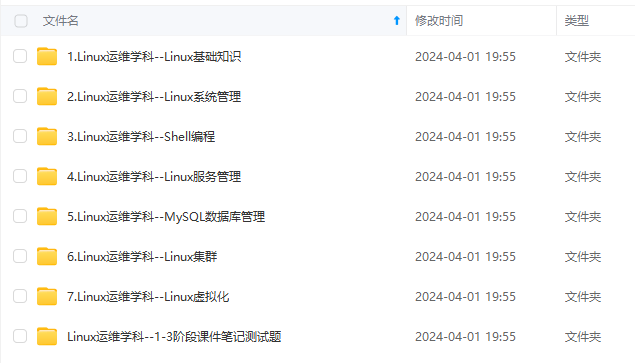k8s---搭建 ----单节点master
第一步#!/bin/bashif [ $UID -ne 0 ]; thenecho "本脚本需要使用root用户执行"exit 0fiecho "-----------------升级kernel-----------------------"rpm --import https://www.elrepo.org/RPM-GPG-KEY-elrepo.orgrpm -Uvh http://www.
- 第一步
#!/bin/bash
if [ $UID -ne 0 ]; then
echo "本脚本需要使用root用户执行"
exit 0
fi
echo "-----------------升级kernel-----------------------"
rpm --import https://www.elrepo.org/RPM-GPG-KEY-elrepo.org
rpm -Uvh http://www.elrepo.org/elrepo-release-7.0-3.el7.elrepo.noarch.rpm
#yum --disablerepo="*" --enablerepo="elrepo-kernel" list available
yum --enablerepo=elrepo-kernel install kernel-lt -y
rpm -qa | grep kernel.*-3 | awk '{print "yum remove -y "$1}' | sh -x
awk -F\' '$1=="menuentry " {print $2}' /etc/grub2.cfg
sed -i "s/GRUB_DEFAULT=.*/GRUB_DEFAULT=0/g" /etc/default/grub
sed -i "s/GRUB_TIMEOUT=5/GRUB_TIMEOUT=0/g" /etc/default/grub
grep numa=off /etc/default/grub
if [ $? -ne 0 ]; then
grep -n GRUB_CMDLINE_LINUX=\".*\" /etc/default/grub | awk -F '[:\"]' '{print "sed -i \""$1"c GRUB_CMDLINE_LINUX=\\\""$3" numa=off\\\"\" /etc/default/grub"}' | sh -x
fi
grub2-mkconfig -o /boot/grub2/grub.cfg
echo "正在重启。。。"
reboot
#第一次运作脚本时正在运行的内核无法删除
#重启后新内核应该已经再运行了
#可手动删除旧内核,也可以再执行一次脚本即可删除旧内核
- 第二部
-
#!/bin/bash
if [ $UID -ne 0 ]; then
echo "本脚本需要使用root用户执行"
exit 0
fi#yum源
curl -o /etc/yum.repos.d/CentOS-Base.repo http://mirrors.aliyun.com/repo/Centos-7.repo
rm -rf /var/cache/yum && yum makecache && yum -y update && yum -y autoremove#时间
timedatectl set-timezone Asia/Shanghai
timedatectl set-local-rtc 0
yum install -y ntpdate
ntpdate -u ntp.api.bz
systemctl restart rsyslog
systemctl restart crond#防火墙和iptables
systemctl stop firewalld
systemctl disable firewalld
iptables -F && iptables -X && iptables -F -t nat && iptables -X -t nat && iptables -P FORWARD ACCEPT#selinux关闭
setenforce 0
sed -i "s/SELINUX=enforcing/SELINUX=disabled/g" /etc/selinux/config#swap关闭
swapoff -a
sed -i '/ swap / s/^\(.*\)$/#\1/g' /etc/fstab#ipvs开启
cat > /etc/sysconfig/modules/ipvs.modules <<EOF
#!/bin/bash
modprobe -- ip_vs
modprobe -- ip_vs_rr
modprobe -- ip_vs_wrr
modprobe -- ip_vs_sh
modprobe -- nf_conntrack
modprobe -- br_netfilter
EOF
chmod 755 /etc/sysconfig/modules/ipvs.modules
bash /etc/sysconfig/modules/ipvs.modules#内核参数设置
cat << EOF | tee /etc/sysctl.d/k8s.conf
net.bridge.bridge-nf-call-iptables=1
net.bridge.bridge-nf-call-ip6tables=1
net.ipv4.ip_forward=1
net.ipv4.tcp_tw_recycle=0
vm.swappiness=0
vm.overcommit_memory=1
vm.panic_on_oom=0
fs.inotify.max_user_instances=8192
fs.inotify.max_user_watches=1048576
fs.file-max=52706963
fs.nr_open=52706963
net.ipv6.conf.all.disable_ipv6=1
net.netfilter.nf_conntrack_max=2310720
EOF
sysctl -p /etc/sysctl.d/k8s.conf#日志设置
mkdir /var/log/journal
mkdir /etc/systemd/journald.conf.d
cat > /etc/systemd/journald.conf.d/99-prophet.conf <<EOF
[Journal]
# 持久化保存到磁盘
Storage=persistent# 压缩历史日志
Compress=yes
SyncIntervalSec=5m
RateLimitInterval=30s
RateLimitBurst=1000# 最大占用空间 10G
SystemMaxUse=10G# 单日志文件最大 200M
SystemMaxFileSize=200M# 日志保存时间 2 周
MaxRetentionSec=2week# 不将日志转发到 syslog
ForwardToSyslog=no
EOF
systemctl restart systemd-journald#停止无关服务
systemctl stop postfix
systemctl disable postfix
yum install -y epel-release
yum install -y conntrack ntpdate ntp ipvsadm ipset jq iptables curl sysstat libseccomp wget lsof telnet vim net-tools#安装docker,设置docker
yum install -y yum-utils device-mapper-persistent-data lvm2
yum-config-manager --add-repo http://mirrors.aliyun.com/docker-ce/linux/centos/docker-ce.repo
yum makecache fast
yum install -y docker-ce
useradd -m docker
systemctl start docker
systemctl enable docker
sed -i "13i ExecStartPost=/usr/sbin/iptables -P FORWARD ACCEPT" /usr/lib/systemd/system/docker.service
mkdir -p /etc/docker
tee /etc/docker/daemon.json <<-'EOF'
{
"registry-mirrors": ["https://n8m3bosn.mirror.aliyuncs.com"],
"exec-opts": ["native.cgroupdriver=systemd"],
"log-driver": "json-file",
"log-opts": {
"max-size": "100m"
},
"storage-driver": "overlay2",
"storage-opts": [
"overlay2.override_kernel_check=true"
]
}
EOF
systemctl daemon-reload
systemctl restart docker#安装kubenetes
cat <<EOF > /etc/yum.repos.d/kubernetes.repo
[kubernetes]
name=Kubernetes
baseurl=https://mirrors.aliyun.com/kubernetes/yum/repos/kubernetes-el7-x86_64/
enabled=1
gpgcheck=0
repo_gpgcheck=0
gpgkey=https://mirrors.aliyun.com/kubernetes/yum/doc/yum-key.gpg https://mirrors.aliyun.com/kubernetes/yum/doc/rpm-package-key.gpg
EOFyum makecache fast
yum install -y kubelet kubeadm kubectl
systemctl enable kubelet#拉镜像,从aliyun
kubeadm config images list | sed -e 's/^/docker pull /g' -e 's#k8s.gcr.io#registry.cn-hangzhou.aliyuncs.com/google_containers#g' | sh -x
docker images | grep registry.cn-hangzhou.aliyuncs.com/google_containers | awk '{print "docker tag",$1":"$2,$1":"$2}' | sed -e 's/registry.cn-hangzhou.aliyuncs.com\/google_containers/k8s.gcr.io/2' | sh -x
docker images | grep registry.cn-hangzhou.aliyuncs.com/google_containers | awk '{print "docker rmi """$1""":"""$2}' | sh -x
-
第三部
-
#!/bin/bash
if [ $UID -ne 0 ]; then
echo "本脚本需要使用root用户执行"
exit 0
fisource ./configrc
ssh-keygen -t rsa
for nip in ${!NODE_IPS[@]}
do
echo "ssh-copy-id root@${nip}" | sh -x
donefor nip in ${NODE_IPS[@]}
do
for idx in ${!NODE_HOSTNAMES[@]}
do
_name=${NODE_HOSTNAMES[$idx]}
_ip=${NODE_IPS[$idx]}
ssh root@${nip} "echo '$_ip $_name' >> /etc/hosts"
done
done
#!/bin/bash
if [ $UID -ne 0 ]; then
echo "本脚本需要使用root用户执行"
exit 0
fi
source ./configrc
rm -rf kubeadm-init.yaml
cat > kubeadm-init.yaml <<EOF
apiVersion: kubeadm.k8s.io/v1beta2
kind: InitConfiguration
nodeRegistration:
taints:
- effect: PreferNoSchedule
key: node-role.kubernetes.io/master
---
apiVersion: kubeadm.k8s.io/v1beta2
kind: ClusterConfiguration
kubernetesVersion: v1.15.1
networking:
serviceSubnet: "10.96.0.0/12"
podSubnet: 10.244.0.0/16
EOF
cat > kube-flannel.yaml <<EOF
---
apiVersion: policy/v1beta1
kind: PodSecurityPolicy
metadata:
name: psp.flannel.unprivileged
annotations:
seccomp.security.alpha.kubernetes.io/allowedProfileNames: docker/default
seccomp.security.alpha.kubernetes.io/defaultProfileName: docker/default
apparmor.security.beta.kubernetes.io/allowedProfileNames: runtime/default
apparmor.security.beta.kubernetes.io/defaultProfileName: runtime/default
spec:
privileged: false
volumes:
- configMap
- secret
- emptyDir
- hostPath
allowedHostPaths:
- pathPrefix: "/etc/cni/net.d"
- pathPrefix: "/etc/kube-flannel"
- pathPrefix: "/run/flannel"
readOnlyRootFilesystem: false
# Users and groups
runAsUser:
rule: RunAsAny
supplementalGroups:
rule: RunAsAny
fsGroup:
rule: RunAsAny
# Privilege Escalation
allowPrivilegeEscalation: false
defaultAllowPrivilegeEscalation: false
# Capabilities
allowedCapabilities: ['NET_ADMIN']
defaultAddCapabilities: []
requiredDropCapabilities: []
# Host namespaces
hostPID: false
hostIPC: false
hostNetwork: true
hostPorts:
- min: 0
max: 65535
# SELinux
seLinux:
# SELinux is unsed in CaaSP
rule: 'RunAsAny'
---
kind: ClusterRole
apiVersion: rbac.authorization.k8s.io/v1beta1
metadata:
name: flannel
rules:
- apiGroups: ['extensions']
resources: ['podsecuritypolicies']
verbs: ['use']
resourceNames: ['psp.flannel.unprivileged']
- apiGroups:
- ""
resources:
- pods
verbs:
- get
- apiGroups:
- ""
resources:
- nodes
verbs:
- list
- watch
- apiGroups:
- ""
resources:
- nodes/status
verbs:
- patch
---
kind: ClusterRoleBinding
apiVersion: rbac.authorization.k8s.io/v1beta1
metadata:
name: flannel
roleRef:
apiGroup: rbac.authorization.k8s.io
kind: ClusterRole
name: flannel
subjects:
- kind: ServiceAccount
name: flannel
namespace: kube-system
---
apiVersion: v1
kind: ServiceAccount
metadata:
name: flannel
namespace: kube-system
---
kind: ConfigMap
apiVersion: v1
metadata:
name: kube-flannel-cfg
namespace: kube-system
labels:
tier: node
app: flannel
data:
cni-conf.json: |
{
"name": "cbr0",
"plugins": [
{
"type": "flannel",
"delegate": {
"hairpinMode": true,
"isDefaultGateway": true
}
},
{
"type": "portmap",
"capabilities": {
"portMappings": true
}
}
]
}
net-conf.json: |
{
"Network": "10.244.0.0/16",
"Backend": {
"Type": "vxlan"
}
}
---
apiVersion: apps/v1
kind: DaemonSet
metadata:
name: kube-flannel-ds-amd64
namespace: kube-system
labels:
tier: node
app: flannel
spec:
selector:
matchLabels:
app: flannel
template:
metadata:
labels:
tier: node
app: flannel
spec:
hostNetwork: true
nodeSelector:
beta.kubernetes.io/arch: amd64
tolerations:
- operator: Exists
effect: NoSchedule
serviceAccountName: flannel
initContainers:
- name: install-cni
image: quay.io/coreos/flannel:v0.11.0-amd64
command:
- cp
args:
- -f
- /etc/kube-flannel/cni-conf.json
- /etc/cni/net.d/10-flannel.conflist
volumeMounts:
- name: cni
mountPath: /etc/cni/net.d
- name: flannel-cfg
mountPath: /etc/kube-flannel/
containers:
- name: kube-flannel
image: quay.io/coreos/flannel:v0.11.0-amd64
command:
- /opt/bin/flanneld
args:
- --ip-masq
- --kube-subnet-mgr
resources:
requests:
cpu: "100m"
memory: "50Mi"
limits:
cpu: "100m"
memory: "50Mi"
securityContext:
privileged: false
capabilities:
add: ["NET_ADMIN"]
env:
- name: POD_NAME
valueFrom:
fieldRef:
fieldPath: metadata.name
- name: POD_NAMESPACE
valueFrom:
fieldRef:
fieldPath: metadata.namespace
volumeMounts:
- name: run
mountPath: /run/flannel
- name: flannel-cfg
mountPath: /etc/kube-flannel/
volumes:
- name: run
hostPath:
path: /run/flannel
- name: cni
hostPath:
path: /etc/cni/net.d
- name: flannel-cfg
configMap:
name: kube-flannel-cfg
EOF
kubeadm init --config kubeadm-init.yaml > kubeadm-init.log
cat kubeadm-init.log
mkdir -p $HOME/.kube
sudo cp -i /etc/kubernetes/admin.conf $HOME/.kube/config
sudo chown $(id -u):$(id -g) $HOME/.kube/config
kubectl apply -f kube-flannel.yaml
for hname in ${NODE_HOSTNAMES[@]}
do
if [ "$hname" != "`hostname`" ];then
echo ">>> ${hname}"
echo "ssh root@${hname} \"`tail -2 kubeadm-init.log`\"" | sh -x
fi
done
#!/bin/bash
if [ $UID -ne 0 ]; then
echo "本脚本需要使用root用户执行"
exit 0
fi
#先执行这个
kubeadm reset
#再执行这个
ifconfig cni0 down
ip link delete cni0
ifconfig flannel.1 down
ip link delete flannel.1
rm -rf /var/lib/cni/
rm -rf /etc/kubernetes
ipvsadm --clear
rm -rf ~/.kube
#!/usr/bin/bash
export NODE_HOSTNAMES=(node1 node2 node3 node4 node5)
export NODE_IPS=(192.168.6.61 192.168.6.62 192.168.6.63 192.168.6.64 192.168.6.65)
更多推荐
 已为社区贡献3条内容
已为社区贡献3条内容









所有评论(0)